
For years, binary options operative Yossi Herzog allegedly stole millions while appearing to be above the law. Prosecutors caught up with him — then let him escape
Ever since the US Justice Department put an Israeli woman behind bars for 22 years last December, Israelis who operate online investment websites are running scared.
Israeli binary options fraudster Lee Elbaz was found guilty by a Maryland jury on August 7, 2019, of three counts of wire fraud and one count of conspiracy to commit wire fraud in connection with a vast scheme to defraud investors all over the world out of about $145 million. She had been the CEO of Yukom Communications, one of over 100 binary options call centers to operate out of Israel in recent years.
“Lee Elbaz’s conviction terrified the industry,” Nimrod Assif, an Israeli attorney who represents foreign binary options victims, told The Times of Israel.
“People in Israel and especially people from the binary options industry heard about Lee Elbaz and followed the case very closely. This created deterrence. You can’t enforce the law against everyone but if you prosecute a few it will deter the others,” he said.
But just as prosecutors scored a triumph in the Elbaz case last summer, the US Department of Justice appears to have committed a glaring and embarrassing error that allowed her boss, Yossi Herzog, one of two alleged kingpins of the Yukom fraud scheme, to get away.
The Department of Justice has a formidable reputation as the one institution willing and able to prosecute white-collar crime and corruption anywhere in the world. For example, when the department in 2015 prosecuted nine top officials from the governing body for international soccer, FIFA, an institution long believed to be mired in corruption, the entire world took notice, with then-attorney general Loretta Lynch hailed by many as a hero.
That’s why it’s perplexing that a Department of Justice prosecutor reportedly allowed a defendant in Israel to flee by telling him he had been indicted and then reportedly telling him that the US government had not yet asked for his extradition.
Indicted, warned, gone
Yossi Herzog was indicted by a US grand jury in February 2019, and again in a superseding indictment issued in September 2019. He was indicted together with his business partner Yakov (Kobi) Cohen and 13 of their employees.
The indictment alleged that between 2014 and 2017 Herzog and the other defendants had used the websites BinaryBook.com and BigOption.com to conspire together to obtain the maximum deposits from binary options investors and make sure investors lost the money in their accounts or could not withdraw it. They allegedly did this through systematic misrepresentations and lies.
A potential trial and conviction of Herzog would have been a feather in the cap of the Fraud Section of the Department of Justice’s Criminal Division, the unit that obtained the indictment against him.
But last month, the advertising department of The Times of Israel received a surprising request from a paralegal at the US Commodities Futures Trading Commission, suggesting that something was amiss.
The CFTC had separately sued Herzog in a civil enforcement action and the paralegal asked if the CFTC could place a legal notice on The Times of Israel website, because so far all of the commission’s attempts to serve Herzog with legal documents had failed. Court filings in that lawsuit revealed that Herzog was confirmed to have fled Israel and could not be found.
“Herzog is not currently in Israel,” lawyers for the CFTC wrote. “[The CFTC] has communicated with representatives of various foreign financial regulatory agencies in an ultimately unsuccessful attempt to determine Herzog’s current geographic location.”
Herzog had been in Israel as recently as June 11, 2019, the day that Department of Justice prosecutor Henry Van Dyck informed Herzog’s lawyer that he had been indicted, according to court filings ahead of the Elbaz trial. By August 22, the Israel Securities Authority informed the CFTC that Herzog was no longer in the country.
This sequence of events strongly suggested that the Department of Justice told Herzog he had been indicted before the department submitted the paperwork requesting his extradition from Israel. An affidavit submitted by Herzog’s lawyer to the Maryland court (available at the pacer.gov subscription service) confirmed this suspicion, as did interviews The Times of Israel conducted with Ankush Khardori, the prosecutor who had led the international investigation into Elbaz, Herzog and the 19 other Yukom defendants until just before the Department of Justice allowed Herzog to flee.
The Department of Justice declined to comment for this article. “As a matter of policy, the US Department of Justice generally does not comment on extradition-related matters,” spokesperson Nicole Navas Oxman told The Times of Israel in an email.
But Khardori had strong words about what he regards as a debacle.
“The fact that Herzog appears to have gotten away makes me sick to my stomach,” Khardori told The Times of Israel. “It would be bad enough on its own, but the particular way that it happened — the fact that it was eminently predictable and could have been avoided — is outrageous. I hope he’s caught someday and is brought to justice, however long that may take.”
‘I am not a thief’
The binary options industry flourished in Israel for a decade before it was outlawed via Knesset legislation in October 2017, largely as a result of investigative reporting by The Times of Israel that began with a March 2016 article entitled “The wolves of Tel Aviv.”
The Knesset legislation contained a loophole, however, as The Times of Israel reported at the time, in that it did not prohibit former binary options operatives from selling online investments if they changed the name and superficial attributes of the product they were selling to forex, CFDs, cryptocurrencies or something else.
At the industry’s height, more than a hundred companies in Israel employed thousands of Israelis who allegedly fleeced billions out of victims worldwide. The fraudulent firms would dupe victims into believing that they were successfully investing and earning money, encouraging them to deposit more and more into their accounts, until the company eventually cut off contact with the investor and disappeared with all or almost all of their money.
Compared to many Israeli binary options operatives, who kept a low profile, preferring to tell friends and family that they worked in “high-tech” or “marketing,” Yossi Herzog was outspoken about his activities. During an August 2017 Knesset hearing [Hebrew link] on the proposed law to ban the binary options industry, Herzog railed against the accusation that he was engaged in any kind of wrongdoing.
“I am asking you to hear me out. Even begging you. I have been in the forex and binary options field for 20 years. I sell forex and binary options all over the world and in Israel. I am proud of this. I am not a criminal, I am not a fraudster and I am not a crime organization, it is not because of me that people hate Israel in the world,” he said.
Prior to working in the forex industry, Herzog, 55, reportedly worked at the Trade Bank, according to a colleague’s affidavit in an Israeli lawsuit against Herzog’s now-defunct company Forex Place. Trade Bank collapsed in 2002 amid large-scale embezzlement by an employee whose brother had gambling debt.
Trade Bank was traditionally associated with Israel’s gray market of unregulated financial service providers, and many of Trade Bank’s customers, as well as some of its owners, were part of the gray market. Not just Herzog, but several Israeli forex and binary options operatives, previously worked in or around Trade Bank at the time of its collapse.
During the 2000s, Herzog ran several trading academies that taught Israelis about forex, and also directed the forex trading company Forex Place.
Over the last five years, Herzog developed a reputation for threatening personal and business rivals. The Times of Israel spoke to several sources, one of whom described threats to their spouse and children and another who described having people sent to his house to “look for him.”
There is no record that Herzog has ever been arrested by Israeli authorities.
One whistleblower, who spoke to an investigator at the Israel Securities Authority, told The Times of Israel that when he mentioned Herzog’s name, he was advised not to say the name out loud “for your own safety.”
The Times of Israel could not independently corroborate the details of this incident.
(This reporter has personally witnessed representatives of the Israel Securities Authority offering warnings that other binary options operatives were “dangerous,” and that it would be wise for reporters and lawyers to steer clear of them — rather than vowing to mitigate the danger by actually enforcing the law.)
In video footage obtained by The Times of Israel, Herzog can be seen giving a speech to employees at his Mauritius-based call center Linkopia, shortly after a November 2016 article appeared in Britain’s Daily Mail and on the website of the Bureau of Investigative Journalism strongly suggesting that Herzog’s BinaryBook.com website was stealing investors’ money.
“I have enough money, I have tens of millions of dollars. I have companies all over the world: in Israel, in Australia, in Ukraine,” Herzog said in the video, “in Istanbul, in Melbourne, Australia, in Cyprus. I have thousands of workers. I can close Linkopia today.”
Herzog said he was dismayed that the article had attracted a lot of attention in Mauritius, as opposed to in Israel, where no one talked about it, he said.
“I am sitting in the hospital in Israel. The article is about the company in Israel. And nobody in Israel talks. Nobody, only my lawyer who sued the article reporter in London,” said Herzog, referring to the fact that he had sued the article’s author, British journalist Melanie Newman, in Israeli court for NIS 1 million (about $290,000). The lawsuit was subsequently withdrawn and Newman has doggedly continued to write about Herzog, Yukom and Linkopia, most recently in a September 2019 exposé.
In the video, Herzog expressed surprise at Mauritians’ reaction to the press coverage. “And I hear that all of Mauritius is talking about Linkopia! That was two words in the article. I said ‘enough is enough’ and I came here.”
Herzog was correct that Newman’s exposé generated little interest in Israel. Indeed, with the exception of articles in The Times of Israel, Herzog and Yukom received little media coverage in Israel prior to the arrest of Lee Elbaz in New York in September 2017, and only a moderate amount of negative media coverage even after that.
In June 2015, Israel’s most-watched television news program, Channel 12 News, featured an upbeat story about how Yukom Communications had awarded [Hebrew link] brand-new BMWs to its outstanding sales agents. In December 2016, the Israeli edition of Forbes published [Hebrew link] a paid-content interview in which Herzog shared his expertise about capital markets regulation around the world.
In October 2016, an Israeli forex company owned by Herzog and Kobi Cohen, called First Index, even received a license from the Israel Securities Authority, making it one of only five online trading companies allowed to solicit Israeli investors. (The Times of Israel has found no record of it having ever been revoked.) In September 2017, First Index became an official sponsor [Hebrew link] of an Israeli soccer team, Hapoel Haifa, and a basketball team, Maccabi Tel Aviv. It was later reportedly [Hebrew link] sold to and absorbed by Colmex, an Israel forex company that also had a license from the Israel Securities Authority.
In fact, the entire, widely fraudulent binary options industry, with its industrial scale criminality and theft and destruction of lives worldwide, was largely ignored both by Israeli media and by the Israeli regulatory and law enforcement authorities for years.
To this day, furthermore, Israel has not prosecuted a single binary options operative in connection to binary options fraud. If it were not for the (only partially effective) Knesset law, and the US prosecutions, it is unclear if this activity would carry any social stigma at all in Israel, or any potential legal consequence.
When Elbaz was convicted in August 2019, Israel’s Channel 12 reported the news, then devoted much of its coverage to sympathetic interviews with a family member and colleague. “How is she doing? She’s destroyed, they destroyed her life,” said the relative. “They simply destroyed her life. She is the most honest and good and hardworking woman ever, a pure soul. It’s unbelievable.”
The long arm of the US Justice Department
By March 2017, as the FBI received more and more complaints about binary options fraud, Khardori was assigned to the case as a prosecutor, along with FBI agents Greg Fine and Jeremy Desor.
Even though this wasn’t the kind of high-profile Wall Street case most sought by prosecutors in the Fraud Section, Khardori dove into the material and became fascinated. What most surprised him was how blatant the fraud was.
‘Employees were saying extremely heartless and damning things about the victims. Perhaps most importantly, the internal documents made clear that this was a systematic fraud: There were detailed call scripts laying out all of the core misrepresentations that salespeople used, and there were recordings of the calls that were circulated internally in company emails that made clear that employees were actually following the scripts quite closely’
“The misrepresentations were really unambiguous and were frequently in writing,” he told The Times of Israel. “For instance, employees were making all sorts of promises — 15-20% returns, ‘risk-free’ trades, and easy withdrawals — in sales documents and emails. The actual facts that we got – from the victims’ accounts and their documents in the first instance – made clear that these things weren’t true at all.”
Once Khardori and the FBI agents got hold of internal company documents, the brazenness of the fraud was even starker, he said.
“Employees were saying extremely heartless and damning things about the victims. Perhaps most importantly, the internal documents made clear that this was a systematic fraud: There were detailed call scripts laying out all of the core misrepresentations that salespeople used, and there were recordings of the calls that were circulated internally in company emails that made clear that employees were actually following the scripts quite closely – just as the victims had recalled the conversations. That’s about everything you need to make the case: scripts that show the fraud was structured and systematized, plus emails and recordings showing in real time that the fraud was executed exactly how it had been planned.”
In September 2017 Khardori and the FBI agents caught a break. Lee Elbaz, the CEO of Yossi Herzog’s company Yukom Communications, had booked a flight from Israel to JFK airport in New York.
When she got off the plane, she was arrested by FBI agents Fine and Desor. She spent the next two years under house arrest at her aunt’s home in California.
In 2018 and 2019, the FBI arrested five additional former employees of Yukom and related companies who had made the mistaken calculation of flying to the United States. These were Liora Welles, Shira Uzan, Lissa Mel, Yair Hadar and Austin Smith. All five pleaded guilty and all but Mel testified against Elbaz at her trial in July-August 2019.
Khardori said that securing cooperators was a key step in clinching the victory against Elbaz.
“It took a while and a lot of hard work by the FBI, but eventually we got cooperators, which was the last piece of the puzzle in terms of presenting a compelling case at trial: We had people who had participated in the fraud, had pled guilty, and could testify about the internal workings — in addition to the contemporaneous emails and recordings we already had. For instance, a cooperator could say that she actually sent a particular email to a victim, or that she actually made a particular recorded call,” said Khardori.
“It’s hard to get much more evidence than that, and it was the result of a lot of difficult, painstaking work by the outstanding FBI agents who worked on the case,” he added.
On August 7, 2019, after three weeks of trial and deliberations, the jury foreman in the Elbaz case stood up and read out the verdict: “Guilty,” “guilty,” “guilty,” “guilty” on three counts of wire fraud and one count of conspiracy to commit wire fraud.
Elbaz sat in stunned silence.
In the ensuing months, the conviction had a chilling effect on the online trading industry.
“Binary options execs fear travelling to US,” read a September 2019 headline in Finance Magnates, a trade publication for the online trading industry. The article quoted a source saying that “the Elbaz case really shocked everyone. A lot of people are canceling trips outside of Israel and especially to the US.”
A source familiar with this industry, who said it now sells forex, CFD and cryptocurrencies and operates from both Israel and Eastern Europe, told The Times of Israel that the best way to get yourself shunned among industry operatives is to mention the United States.
“If you approach a platform provider or payment service provider and say you want to target Americans, they will throw you out of the room,” said the source, who spoke on condition of anonymity.
“There are eight billion people in the world and only 300 million Americans. Why take any chances? Nobody wants to end up like Lee Elbaz.”
“It’s much easier to target Australia or the UK,” the source explained. “The UK Financial Conduct Authority won’t do anything to you. They’ll just issue a warning,” he said, referring to the practice of the FCA and other securities regulators of publishing “investor warnings,” but doing little else, when they suspect an online trading website is breaking the law.
How the Department of Justice botched Herzog’s extradition
Elbaz’s conviction was a high-profile victory for the Department of Justice, especially for the Fraud Section of the Criminal Division, which prosecuted the case. In its annual report for 2019, the Elbaz case was just one of three “significant trials and sentencings” highlighted by the Market Integrity and Major Frauds Unit of the Fraud Section and one of just nine trials highlighted for the entire Fraud Section, with its 150 prosecutors. The amount defrauded, $145 million, though only a small proportion of Israel-based binary options fraud, was also high compared to other cases prosecuted by the Fraud Section.
But late last spring and summer, as the US Department of Justice was winning the battle against Elbaz, it appears to have forfeited the war — for now, at least — against her boss Yossi Herzog and possibly against other defendants as well.
In mid-May 2019, two months before her scheduled trial, the prosecutors in the Elbaz case faced a quandary. A judge had granted a request from Elbaz to take videotaped depositions (sworn, out-of-court oral testimony) in Israel of four former Yukom executives: Herzog, Elad Bigelman, Nissim Alfasi and Chanan Tabarko. The plan was for both Khardori and Elbaz’s defense attorney, Barry Pollack, to fly to Israel to take depositions during the week of June 19.
But unbeknownst to three of the men to be deposed — Herzog, Bigelman and Alfasi — they had already been indicted by a grand jury in February. The indictment remained under seal. This means that no one, neither the public nor the defendants, knew about the indictments. It is common for indictments to be put under seal when defendants are abroad and US authorities want to prevent them from trying to flee before they can catch them.
The quandary that prosecutors faced was that if the US government obtained statements from the deponents without them being aware that they had been charged, the government could later be accused of having violated their Fifth Amendment rights against self-incrimination.
At the same time, the Justice Department had not completed the extradition paperwork for Herzog, Bigelman and Alfasi. This meant that if the defendants learned they had been charged, they could flee Israel to a country that does not extradite to the United States.
The extradition paperwork involved preparing a detailed FBI agent affidavit laying out the key evidence specific to each individual, as well as a lawyer’s affidavit describing the investigation and the legal charges, all in a way that someone unfamiliar with the US legal system could follow. The material then had to be reviewed by someone at the Israel desk for the Department of Justice’s Office of International Affairs. In mid-May 2019, when the problem of the depositions came up, the person on the Israel desk had recently changed and the new person was struggling through a backlog of work.
Khardori had been eager to fly to Israel to question the defendants.
“If you have the chance to ask a defendant questions under oath and they aren’t taking the Fifth, you should definitely take that opportunity,” he said.
He proposed warning the defendants in writing that “it is possible they may have been charged in the US and that if that were the case, they were free to consider consulting counsel.”
But the judge thought this warning sounded too vague.
“I told her it was a struggle to say much more without being explicit, and I volunteered that maybe the best course was simply to tell them straightforwardly that they’d been charged and for the government to do whatever it could to try to deal with the consequences of that, for instance, by having the extradition paperwork completely done and transmitted to Israel beforehand. She agreed with me,” he recalled.
Taken off the case
On May 31, 2019, however, Khardori suffered fallout from a recent work-related dispute with a colleague who was above him in the Department of Justice hierarchy. His immediate supervisor informed him he would be taken off the Elbaz case, just a month and a half before her scheduled trial. He was given ten days to prepare an appeal of the decision.
In a June 10 memo to Robert Zink, head of the Fraud Section, which The Times of Israel has seen parts of, Khardori conveyed his distress over the decision to take him off the Elbaz case.
“I have spent two years and countless hours working on the binary options investigation, and it is now culminating in an important and complex trial that is the first of its kind anywhere in the world. My removal from the case would deprive me of an opportunity that… reflects the culmination of years of my work and represents an opportunity of great professional and personal significance to me,” he wrote.
Khardori also told Zink that he was worried his removal would adversely affect the case, including the preparation of extradition requests.
“My removal is occurring at a critical juncture, and crucial tasks that need to be completed for trial will be compromised as a result,” he wrote in the June 10 memo. “First, as a result of the depositions, we should try to push through extradition packages from [the Office of International Affairs] to Israel.”
In the preceding days, Henry Van Dyck, principal assistant chief, Market Integrity & Major Frauds Unit, the most senior of the three prosecutors on the new trial team, had told Khardori he wanted the depositions to be canceled, Khardori said. His stated reason for this, Khardori said, was because preparing for the depositions and flying to and from Israel would take too much time when the new trial team had only weeks left to prepare for the trial on July 16.
“It is my understanding (from having spoken with Mr. Van Dyck) that an effort may be made to have the defense cancel the depositions, but I believe facilitating this would be a strategic mistake,” Khardori wrote in his memo.
“It is more likely than not that the depositions will be cancelled once the deponents are aware of the pending indictment in the Cohen proceeding, but if for some reason they are still willing to sit for depositions, this would be an opportunity to take testimony from three defendants in a pending criminal case—the equivalent of cross-examination at trial. Any deliberate effort to avoid that opportunity—based on concerns that a new trial team cannot handle the time and attention that would be required by these depositions—may be defensible as a means of mitigating the fallout from my removal, but it would be unfortunate on the merits,” he wrote.
Khardori’s appeal to Zink, the head of the Fraud Section, was not accepted, and on June 13 he was told that he was no longer on the case. He felt deeply disappointed.
Free to flee
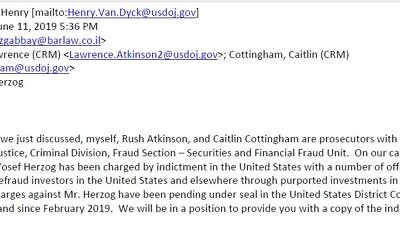
Two days earlier, on June 11, something strange had happened. June 15 court filings (also available at pacer.gov) show that Henry Van Dyck, the most senior member of the new trial team, called Herzog’s lawyer, Zvi Gabbay, and told him that his client had been indicted in February and that he had the right not to incriminate himself by participating in the upcoming depositions.
Gabbay responded to Van Dyck that, in that case, Herzog would be seeking counsel in the United States. This effectively meant that Herzog would ultimately not agree to be deposed, since no US lawyer would allow such a deposition under the circumstances.
But Van Dyck went further. For reasons that are unclear, he actually informed Herzog’s lawyer that extradition proceedings had not begun yet, according to an affidavit by Gabbay in the June 15 court filings.
“On 11 June, 2019, I received a telephone call from Henry Van Dyck of the United States Department of Justice,” read the affidavit.
“He informed me that he expects an extradition request for Mr. Herzog will be made, but that process has not yet commenced,” Gabbay added.
Van Dyck presumably gave Gabbay this information by accident, without thinking through the consequences. But the message he conveyed was as stark as day: Your client has been indicted, but there is nothing compelling him to stay in Israel, a country that will likely extradite him. He is free to flee.
Which he did.
Neither Van Dyck nor Fraud Section head Robert Zink responded to emails from The Times of Israel asking them about these incidents.
Where are the other defendants?
Herzog is currently living the life of a fugitive. Most likely, he is hiding in a country that does not extradite to the United States. There are dozens of such countries. Not all of them are appealing places to live for someone accustomed to a millionaire lifestyle, but some are.
It is unclear whether the other two defendants who were supposed to be deposed also took advantage of the window of opportunity to flee. According to Israeli court filings, Elad Bigelman was still in Israel in early December, when he filed a police complaint [Hebrew link] against three men who allegedly tried to violently extort millions of euros from him.
Kobi Cohen, Herzog’s business partner and co-defendant, is living in the Congo where he runs a sports-betting business, sources told The Times of Israel. Although the Congo claims to extradite to the United States, it does not in practice do so. This puts Cohen out of reach of US justice, for now at least.
The other defendants who were indicted in September along with Herzog, Cohen, Alfasi and Bigelman are Ori Maymon, Runal Jeebun, Sabrina Elofer, Afik Tori, Anog Maarek, Oron Montgomery, David Barzilay, Gilad Mazugi, Hadas Ben Haim, Yousef Bishara, and Nir Erez.
Some of them are presumably in Israel, but Israel’s Justice Ministry refused to respond to the question of when and whether it had received extradition requests from the United States and what the status of any extradition proceedings may be.
“We will not comment on contacts or requests between governments except when the process is public,” Efrat Oren, a spokeswoman for the Justice Ministry, wrote in an email to The Times of Israel.
Anog Maarek was extradited from Hungary to the United States in September 2019. He pleaded guilty on January 24, 2020, to conspiracy to commit wire fraud. His sentencing had been scheduled for May 4, 2020, but was delayed due to the coronavirus.
The situation in Mauritius, however, is worrying, raising concerns that the mistake the Justice Department made vis-a-vis Herzog, i.e., failing to request his extradition before unsealing his indictment, could be more than a one-time fluke.
Sources in Mauritius told The Times of Israel that Runal Jeebun, the director of the Linkopia call center in Mauritius, whose indictment was unsealed by the Department of Justice last November, continues to live freely in Mauritius and as far as they can tell has never been arrested and does not seem to be involved in any legal proceedings.
Linkopia has since changed its name to Synaegis, and continues to operate, now selling forex, as opposed to binary options, to investors all over the world.
While Mauritius does extradite to the United States, a source in Mauritius told The Times of Israel that he does not believe the government of Mauritius has received an extradition request yet, although he said he could not be 100 percent sure.
The Times of Israel sent a query to the office of the attorney general of Mauritius but did not hear back.
The US Department of Justice declined to comment.
Taking responsibility
Khardori resigned from the Justice Department on January 31, and has since written a series of articles for Slate and the Wall Street Journal that broadly criticize what he sees as a culture of mediocrity and narrow careerism within parts of the Justice Department that severely inhibit its ability to prosecute white collar crime.
‘This is a very sad situation for the victims of Herzog’s criminal conduct, and I hope someone at the Department takes some responsibility for it’
Khardori has written about how ambitious prosecutors often prefer to go after Wall Street malfeasance, because such cases get press coverage, and about how, in his assessment, prosecutors are less inclined to pursue cases involving internet and consumer fraud, especially when it is perpetrated from abroad (as in the case of binary options), because such cases are difficult to build, involve a lot of bureaucratic dealings with foreign governments, and don’t usually generate media coverage (the Elbaz case was exceptional in that respect). Khardori has written that believes the negative trends he sees within the Justice Department have gotten worse under the Trump administration.
Meanwhile, internet fraud is an ever-growing problem. “Every year for pretty much the last 20 years the FBI’s numbers on internet crime have reached a new record figure,” Khardori told The Times of Israel.
As for Herzog, Khardori is disappointed that the kingpin of a scheme he spent two years investigating and prosecuting has gotten away.
“This is a very sad situation for the victims of Herzog’s criminal conduct, and I hope someone at the Department takes some responsibility for it.
“I also sincerely hope that someone there takes some real ownership of this problem and puts some serious time, energy, and resources into doing whatever it takes to bring Herzog to justice as quickly possible.”
ATTENTION READERS
We See The World From All Sides and Want YOU To Be Fully InformedIn fact, intentional disinformation is a disgraceful scourge in media today. So to assuage any possible errant incorrect information posted herein, we strongly encourage you to seek corroboration from other non-VT sources before forming an educated opinion.
About VT - Policies & Disclosures - Comment Policy

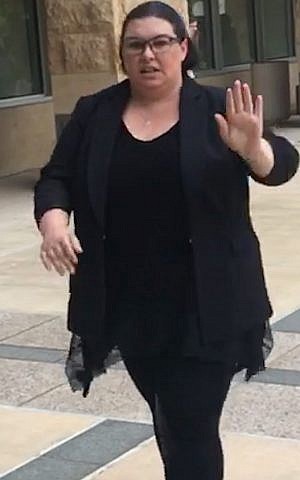
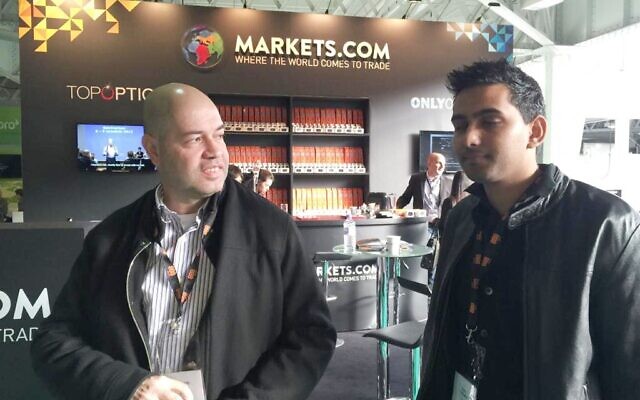
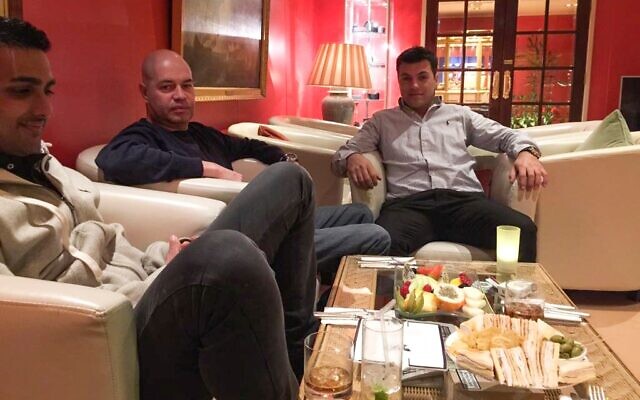

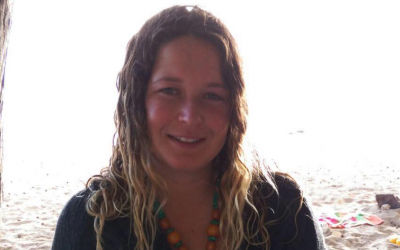
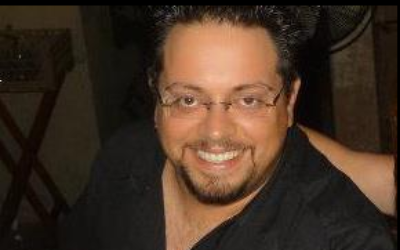
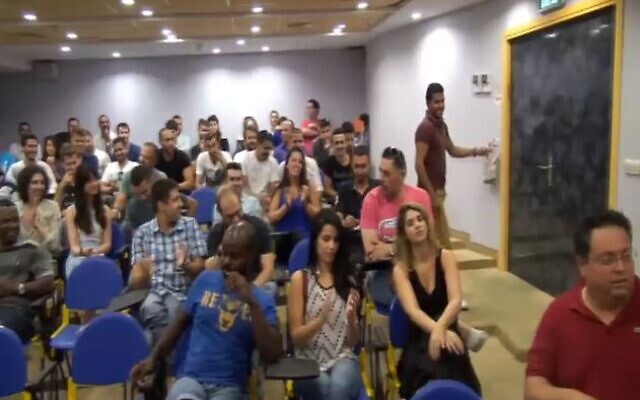
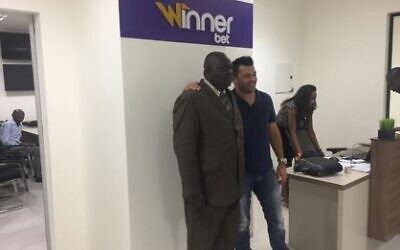
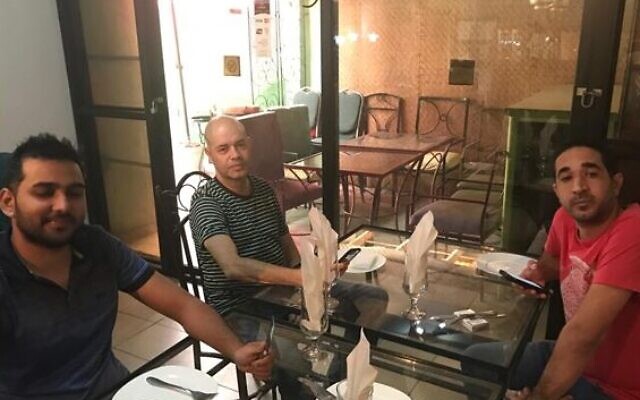



COMMENTS